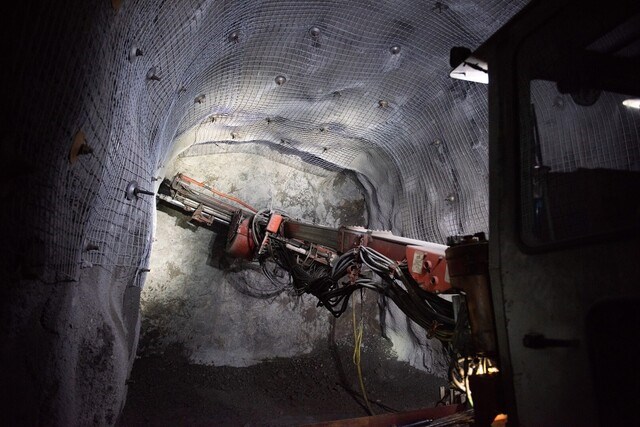Two Kamloops-area mines say they don't expect to be affected by a recently promised American tariff on copper imports.
U.S. President Donald Trump announced the 50 per cent tariff on Tuesday, later saying it would take effect Aug. 1.
According to data from Natural Resources Canada, Canada’s total exports of copper and copper-based products were valued at $9.3 billion in 2023, and the U.S. accounted for 52 per cent of Canada’s copper export value the same year.
But Vancouver-based mining giant Teck Resources, which operates the open-pit Highland Valley Copper mine near Logan Lake, said it wouldn’t be impacted by the proposed tariff.
“Teck does not currently sell copper concentrate or finished copper into the U.S. and would therefore be unaffected by potential tariffs,” the company said in a statement to Castanet.
Teck exports most of its copper and zinc concentrates to Asia and Europe.
New Gold, which operates its New Afton copper and gold mine just west of Kamloops, said it would be similarly unaffected.
“New Gold does not currently sell any copper concentrate into the U.S. and therefore has no direct exposure to the U.S. copper market or the recently announced U.S. copper tariffs,” the company said.
Many Canadian mining companies say they’re in the same boat, as most copper concentrates are shipped overseas, largely to China.
Analysts have said Quebec would be most affected as its where most exports originate, with Canada’s only copper smelter located in the province, but the tariff could potentially impact business confidence more broadly amid the ongoing trade war with the U.S.
The rush to impose the tariff immediately will likely mean U.S. businesses and consumers will pay the price because they’ll have to keep relying on imports, including from Canada.
In a news release, the Canadian National Director of the United Steelworkers union denounced the planned tariff, saying copper is critical to Canada’s economy.
“This is yet another escalation in Trump’s trade war that puts Canadian jobs and entire industries at risk,” said USW national director Marty Warren, adding that there are growing fears companies could be forced to cut jobs amid the broader trade war.
“These tariffs will drive up costs, disrupt supply chains and hurt workers on both sides of the border.”
USW said it was calling on the Canadian federal government to implement a wage subsidy with job guarantees to protect workers, strengthen procurement policies and introduce Made-In-Canada tax incentives.
— with files from the Canadian Press


